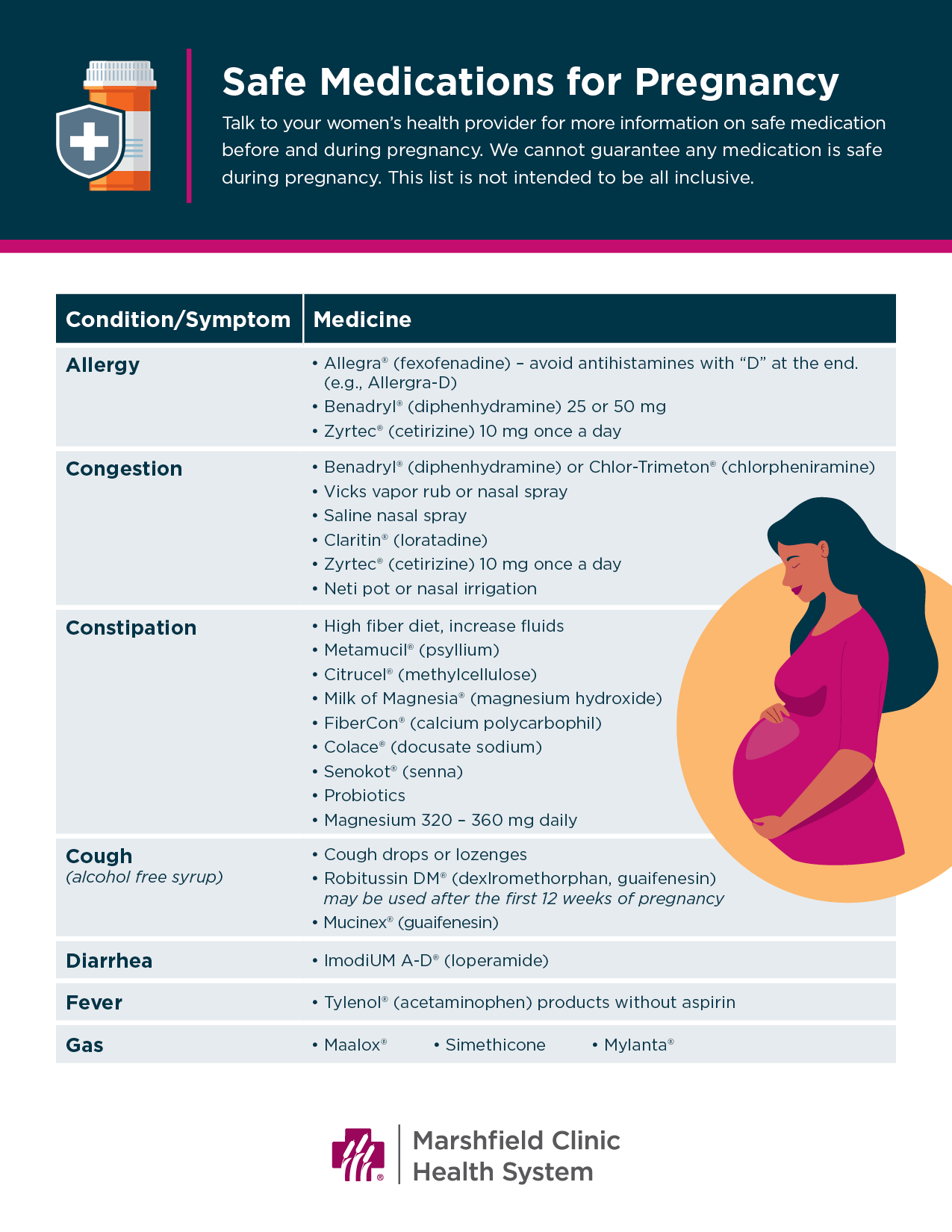Pregnancy can bring on some uncomfortable side effects like nausea and gas, plus aches and pains as your body changes. It has been widely acknowledge and accepted to take acetaminophen, like Tylenol, to relieve pain or reduce fever while pregnant. Non-steroidal anti-inflammatory drugs like ibuprofen are often not recommended due to development concerns for your baby.

A statement published in the journal Nature Reviews Endocrinology led to a story by CNN explaining how some research shows that “prenatal exposure to acetaminophen might alter fetal development.” This article created a significant amount of turmoil in the medical community, explained Dr. Jan Goral, OB/GYN physician with Marshfield Clinic Health System.
Despite the study, Goral advised that it is safe to take acetaminophen for pain control in pregnancy.
“I still routinely recommend judicious use of Tylenol to my patients for control of pain and fevers,” he said.
ACOG agrees it is safe
American College of Obstetrics and Gynecology (ACOG), who set the standard for patient care in OB/GYN, are supportive behind the safety of acetaminophen during pregnancy. According to ACOG’s response to the research study, OB/GYNs across the country “have always identified acetaminophen as one of the only safe pain relievers for pregnant individuals during pregnancy.” The response went on to explain studies that have been conducted in the past show no clear evidence that proves a direct relationship between acetaminophen (during any trimester) and fetal developmental issues.
“Neurodevelopmental disorders, in particular, are multifactorial and very difficult to associate with a singular cause,” read the statement. “The brain does not stop developing until at least 15 months of age, which leaves room for children to be exposed to a number of factors that could potentially lead to these issues.”
Talk to your provider
It’s important to know that you should not be scared to take acetaminophen for pain and fever during pregnancy. Goral recommends to only take medications as needed, in moderation, and after consulting with your women’s health provider.
“We are happy to discuss safe medications with you or answer any questions you may have during your pregnancy,” Goral said.
For more information about safe medications for common pregnancy symptoms, download this handout.








Leave a Reply